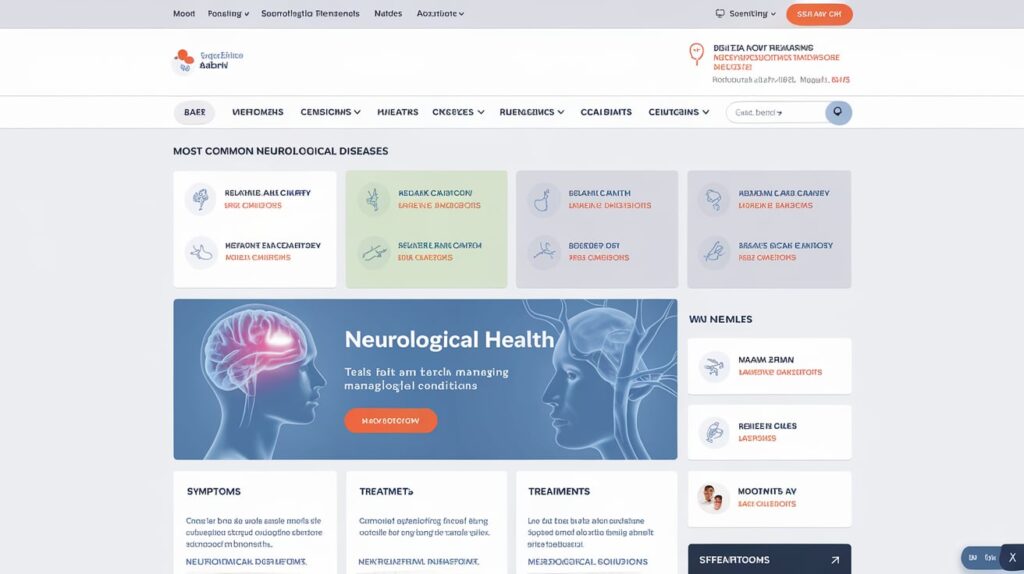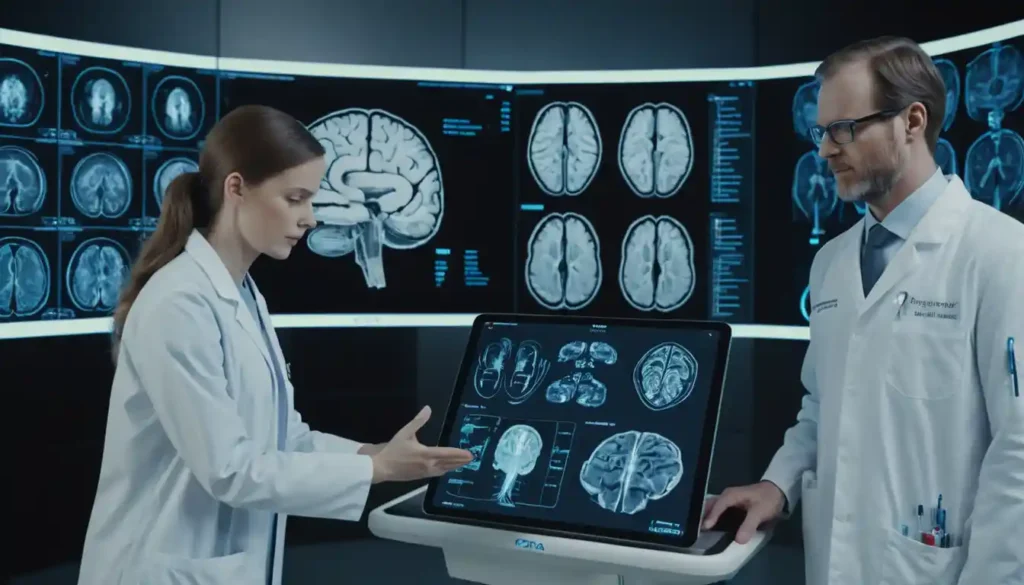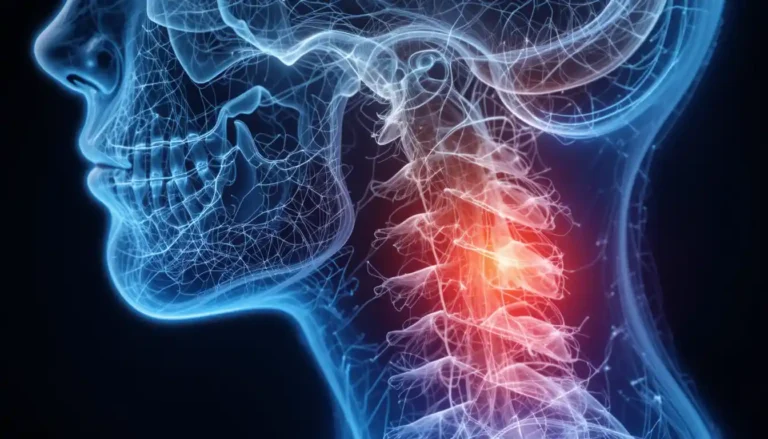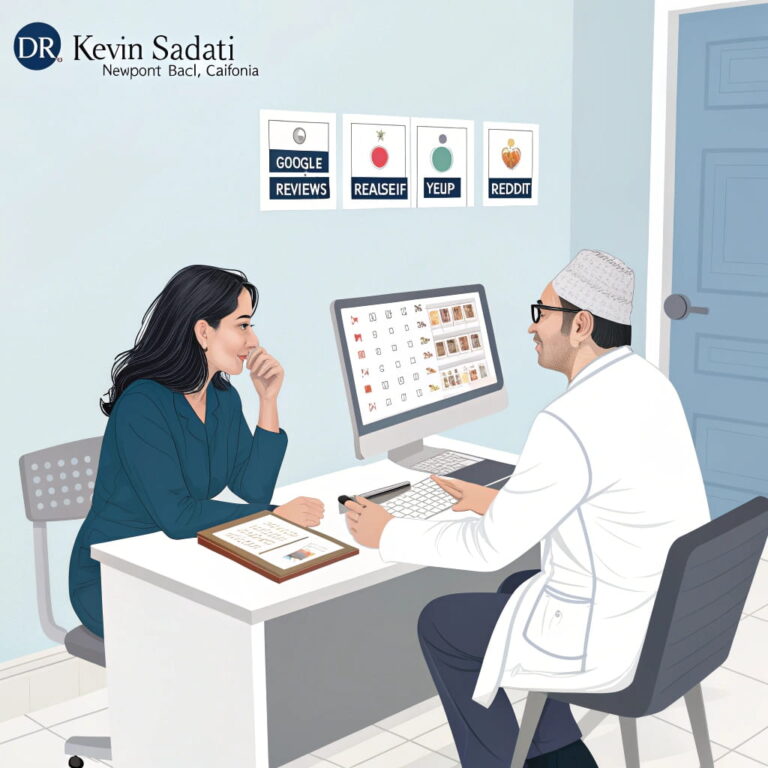DoctorHub360.com Neurological Diseases – Helpful Information and Support!
After my Parkinson’s diagnosis, I found helpful information on DoctorHub360.com. It gave me clear details on treatments and tips for managing my condition. The site made me feel more confident and supported in my journey.
DoctorHub360.com neurological diseases provides easy-to-understand information, including symptoms and treatments. It helps patients and caregivers learn more about these conditions. The site also offers useful tools and support for managing neurological health.
Stay with us as we dive into DoctorHub360.com Neurological Diseases, offering tips and resources to support your journey.
What Are Neurological Diseases? – Find support at DoctorHub360.com!
Neurological diseases are conditions that affect the brain, spinal cord, and nerves. These disorders interrupt the communication between the brain and body, causing symptoms that can greatly impact everyday life.
Common types include:
- Degenerative Diseases (e.g., Alzheimer’s, Parkinson’s)
- Autoimmune Disorders (e.g., Multiple Sclerosis)
- Neuromuscular Conditions (e.g., ALS, Myasthenia Gravis)
- Seizure Disorders (e.g., Epilepsy)
- Headache Disorders (e.g., Migraines)
DoctorHub360.com provides clear and helpful information on these conditions, giving patients and caregivers the tools they need to manage their health.
Read More: Po Box 6184 Westerville Oh – Your Secure Mail Solution!
Common Types of Neurological Diseases – Discover neurological diseases today!

Alzheimer’s Disease
A brain disorder that affects memory and thinking. Early signs include confusion, forgetfulness, and trouble with daily tasks.
- Recent Advances: New treatments targeting amyloid plaques and better diagnostic tests.
- On DoctorHub360.com: Tips on lifestyle changes, caregiving, and ongoing research.
Parkinson’s Disease
- A movement disorder caused by the loss of dopamine in the brain. Symptoms include tremors, stiffness, and balance problems.
- Latest Breakthroughs: Gene therapy and deep brain stimulation (DBS).
- On DoctorHub360.com: Rehab exercises and advice on managing medications.
Multiple Sclerosis (MS)
- An autoimmune disease where the body attacks the nerves. Symptoms include fatigue, vision problems, and coordination difficulties.
- Emerging Therapies: Treatments aimed at repairing nerve damage.
- On DoctorHub360.com: Coping strategies and mental health support.
Epilepsy
- A condition causing repeated seizures due to unusual brain activity.
- Innovative Treatments: Responsive neurostimulation and the ketogenic diet.
- On DoctorHub360.com: Medication guides and tips for seizure management.
Migraines
- Severe headaches that often come with nausea, light sensitivity, and visual disturbances.
- Cutting-Edge Solutions: CGRP inhibitors and wearable devices for relief.
- On DoctorHub360.com: Identifying triggers and personalized treatment plans.
Causes and Risk Factors – Understand the risk factors!
Neurological diseases arise from various factors, including:
- Genetics: Conditions like Huntington’s and certain epilepsies have hereditary roots.
- Infections: Meningitis, encephalitis, and other infections can damage the nervous system.
- Trauma: Brain injuries and spinal cord damage can result in long-term neurological impairments.
- Environmental Factors: Toxins, pollution, and workplace exposure to chemicals.
- Aging: Degenerative diseases like Alzheimer’s are more prevalent with advancing age.
DoctorHub360.com provides actionable insights into these causes and offers resources for mitigating risk.
What are the symptoms of chronic neurological conditions?
Chronic neurological conditions can cause symptoms that affect everyday life. Common signs include headaches, memory problems, and confusion, especially in Alzheimer’s.
People may also experience muscle weakness, trouble with balance, and tremors, like in Parkinson’s. Seizures are common in epilepsy, and vision issues or tiredness can happen in multiple sclerosis. Some may also have trouble speaking or swallowing.
Research from DoctorHub360.com amino acids shows that certain amino acids may help manage these symptoms. Early diagnosis and ongoing care are key to managing these conditions and improving life quality.
Read More: ETS2 Mod Sisu 1.42 – Enhance Your Trucking Experience!
Types of Symptoms of Neurological Diseases:
Symptoms vary depending on the condition but often include:
- Chronic headaches or migraines
- Muscle weakness or paralysis
- Tremors, seizures, or spasms
- Memory loss or cognitive decline
- Difficulty speaking, swallowing, or walking
Recognizing early signs is crucial for effective treatment. DoctorHub360.com offers symptom trackers and diagnostic tools to help individuals take timely action.
Diagnosis of Neurological Diseases – Learn more about diagnosis options!
Early diagnosis improves outcomes. Common diagnostic techniques include:
- Imaging Tests: MRI and CT scans provide detailed views of the brain and spinal cord.
- Electrodiagnostic Tests: EEG and EMG analyze brain and nerve activity.
- Genetic Testing: Identifies hereditary neurological conditions.
- Spinal Taps: Tests cerebrospinal fluid for infections or autoimmune markers.
DoctorHub360.com explains these methods in detail, ensuring patients feel informed and prepared.
Read More: Bear Head Metal Zippies Door –The Ideal Blend of Security and Style!
Treatment Options for Neurological Diseases:
Medications:
Anti-seizure drugs help control seizures in epilepsy, reducing their frequency and severity.Dopamine agonists are used for Parkinson’s to manage symptoms like tremors and stiffness.
Therapies:
Physical and occupational therapy help improve movement and coordination, making everyday tasks easier.Speech therapy can help with communication problems, making it easier to speak and understand.
Surgical Interventions:
Deep Brain Stimulation (DBS) is used for Parkinson’s to send electrical signals that reduce symptoms.Surgery may be used to treat epilepsy or remove brain tumors, depending on the condition.
Lifestyle Changes:
Regular exercise and a healthy diet can help improve brain health and reduce symptoms.Stress management, like yoga or relaxation techniques, can help manage the effects of stress on the brain.
DoctorHub360.com provides helpful guides to explore all treatment options and find the best ways to manage neurological diseases.
What medication is used to treat neurological disorders?
Medications for neurological disorders are prescribed based on the specific condition, aiming to manage symptoms and improve quality of life. For epilepsy, anti-seizure medications like carbamazepine, valproate, and levetiracetam help control seizures.

In Parkinson’s disease, dopamine agonists, such as pramipexole and ropinirole, reduce symptoms like tremors and stiffness. For Alzheimer’s disease, cholinesterase inhibitors like donepezil and rivastigmine help slow cognitive decline and improve memory.
In conditions like multiple sclerosis, steroids like prednisone are used to reduce inflammation and manage flare-ups. Muscle relaxants such as baclofen or tizanidine help relieve muscle spasms and stiffness, especially in diseases like ALS or multiple sclerosis.
These medications play an important role in managing symptoms and helping individuals with neurological conditions lead a better life.
The Role of Technology in Advancing DoctorHub360.com Neurological Diseases:
Technology is transforming the way DoctorHub360.com neurological diseases are diagnosed, treated, and managed. From AI-driven diagnostics to wearable health devices, advancements in medical technology are improving patient outcomes and enhancing the quality of life for individuals with neurological disorders.
AI and Machine Learning for Early Diagnosis
Artificial intelligence (AI) is revolutionizing neurological disease detection. AI-powered algorithms analyze medical imaging (such as MRI and CT scans) to detect early signs of conditions like Alzheimer’s, Parkinson’s, and Multiple Sclerosis with high accuracy. DoctorHub360.com provides insights into how AI is making diagnosis faster and more precise.
Wearable Devices for Real-Time Monitoring
Smartwatches and wearable devices track vital health data, including tremors, muscle activity, heart rate, and sleep patterns. For conditions like Parkinson’s disease and epilepsy, these devices help detect symptoms in real time, allowing for better disease management and timely medical intervention.
Telemedicine and Remote Consultations
DoctorHub360.com neurological diseases section highlights how telemedicine is making neurological care more accessible. Patients can now consult with neurologists remotely, reducing the need for frequent hospital visits and ensuring timely medical guidance.
Virtual Reality (VR) and Augmented Reality (AR) in Therapy
Neurological rehabilitation is evolving with VR and AR-based therapies. Stroke and multiple sclerosis patients can improve motor function through interactive exercises that enhance brain-to-body coordination. DoctorHub360.com provides updates on how VR is reshaping neurological treatment plans.
Gene Therapy and Stem Cell Research
Innovations in gene therapy and stem cell treatments offer hope for reversing neurological damage. These treatments target genetic mutations in ALS, Huntington’s disease, and other degenerative conditions. DoctorHub360.com explores the latest research and breakthroughs in regenerative medicine.
AI-Powered Personalized Treatment Plans
DoctorHub360.com uses AI-driven tools to suggest personalized treatment options based on patient history, symptoms, and response to medications. These tailored approaches improve treatment effectiveness and patient outcomes.
Smart Medication Management Apps
Mobile applications now assist patients with medication tracking, reminders, and dosage adjustments. These apps help individuals manage complex neurological medication schedules, reducing the risk of missed doses or side effects.
Robotic-Assisted Surgeries
For severe neurological conditions, robotic-assisted neurosurgery offers enhanced precision. Technologies like Deep Brain Stimulation (DBS) for Parkinson’s disease improve motor function and reduce tremors, helping patients regain control over their movements.
How DoctorHub360.com Supports Neurological Health?

Expert-Verified Content:
All resources on DoctorHub360.com are reviewed by medical professionals, ensuring accurate and reliable information.
Innovative Tools:
The platform offers useful tools like symptom trackers, medication reminders, and AI-based treatment suggestions to help manage conditions.
Community Support:
DoctorHub360.com provides interactive forums, webinars, and caregiver resources for connection and shared learning.
Access to Research:
Stay updated on the latest advancements in neurology, including gene therapies and stem cell research.
Read More: Above Ground Pools Laws Boone Iowa – Legal Guidelines, Expert Advice!
Frequently Asked Questions:
1: Can DoctorHub360.com provide personalized treatment recommendations?
Yes, DoctorHub360.com uses AI to offer personalized treatment suggestions based on the user’s symptoms and medical history, helping individuals choose the best care options.
2: Does DoctorHub360.com offer support for caregivers?
Yes, DoctorHub360.com provides caregiver resources, including forums, webinars, and advice, to help caregivers better understand and manage their loved one’s condition.
3: Can I find information on the latest research about neurological diseases?
Yes, DoctorHub360.com provides access to the latest advancements in neurological research, including new treatments, therapies, and clinical trials.
4: How can DoctorHub360.com help me stay informed about my condition?
The platform offers up-to-date articles, research, and expert-reviewed content, ensuring that users stay informed about the latest developments in neurological health and treatment options.
5: How does DoctorHub360.com help with rare neurological diseases?
DoctorHub360.com offers detailed resources and expert insights, helping patients and caregivers understand and explore treatment options for rare neurological diseases.
Conclusion:
DoctorHub360.com is a helpful platform for people dealing with neurological diseases. It provides trusted information, useful tools, and a community for support. Whether you’re managing a well-known condition like Alzheimer’s or a rare disease, the website offers guidance on treatment options, research, and care.
With resources for patients and caregivers, DoctorHub360.com helps you stay informed and take control of your health, making it easier to live well with a neurological condition.
Read More:






